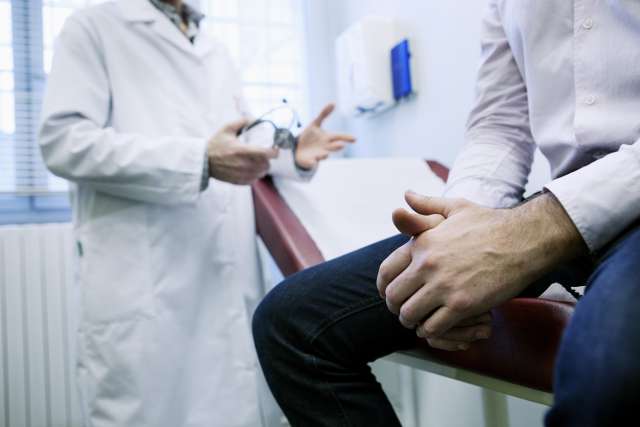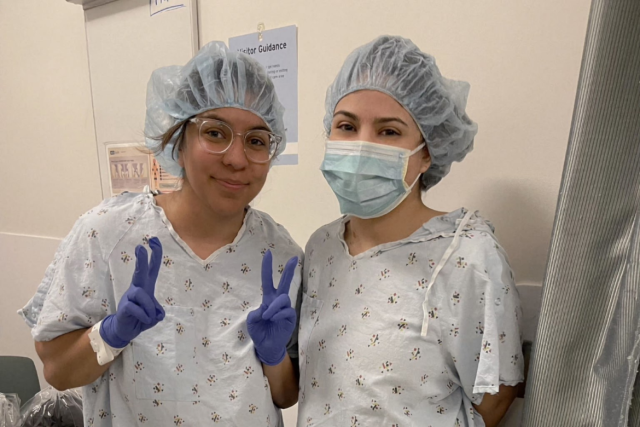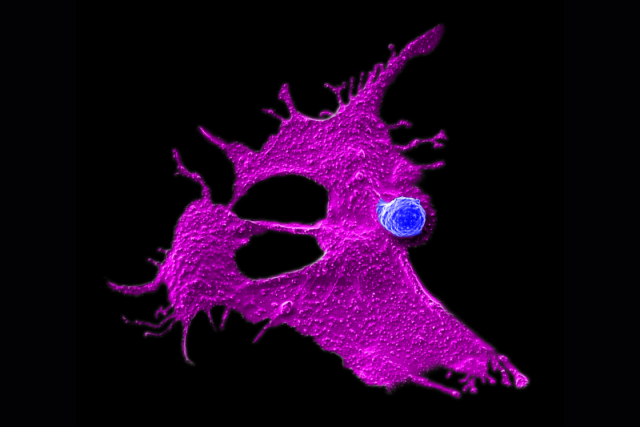Many parents whose babies are having trouble breathing and swallowing are told the issues will resolve over time.
“They get misdiagnosed, or they get underdiagnosed,” said Sohit Kanotra, MD, who runs the UCLA Complex Pediatric Airway Reconstruction, Swallowing and Tracheostomy Program. “The traditional advice is, ‘Oh, they’ll outgrow this.’”
But that’s not always the case.
All told, there are at least 50 diagnoses that come under the aerodigestive umbrella, he said. These issues are often congenital, but may also result from long-term use of a breathing tube or from trauma.
Patients may have trouble swallowing, they may be aspirating food or liquid into their lungs, or they may have breathing issues due to narrow airways, among other complications. There can also be multiple interrelated issues, including feeding, airway, reflux and motility (movement of food through the digestive system).
As a result, patients may need to see a pediatric otolaryngologist – commonly known as an ear, nose and throat (ENT) specialist – along with a pediatric gastroenterologist and speech language pathologist.
“These are really complex patients,” Dr. Kanotra said, “and it’s very hard for parents to have multiple appointments for these sick babies and go to multiple physicians.”
Coordinated planning and procedures
At the new Pediatric Airway and Swallowing Disorders Clinic, which opened in September at Ronald Reagan UCLA Medical Center, these patients can now receive care from multiple specialists in a single setting.
This means that parents don’t have to try to make sense of different diagnoses from different specialists, which, in turn, means that patients can receive effective treatment more quickly. “We want to ensure that families receive appropriate and coordinated care,” Dr. Kanotra said.
Whenever possible, surgical procedures are also coordinated, reducing the number of times patients need to undergo anesthesia. “For example, if I have to do a bronchoscopy to look at the airway, we coordinate that with the gastroenterologist doing an upper GI endoscopy (to look at the upper part of the digestive tract),” he said.
Dr. Kanotra established the aerodigestive program when he joined UCLA Health in 2023. Since then, he’s focused on expanding access and awareness of the program, which treats patients from birth up to age 18.
Diagnostic tests such as swallow studies are done at the clinic, while surgical procedures to address complex airway and swallowing disorders are conducted at UCLA Mattel Children’s Hospital. These include procedures to address structural issues in the throat, voice box and windpipe, ranging from rare conditions such as congenital tracheal stenosis (having an abnormally narrow windpipe) to more common ones like laryngomalacia, a structural issue in which some of the soft tissues of the voice box partially obstruct the airway.
Post-operative care needs to be tailored for each patient and requires a multidisciplinary approach, Dr. Kanotra said. This extends to the neonatal and pediatric intensive care units (the NICU and the PICU), where monitoring healing, including being attuned to airway and feeding issues, is critical, he said.
The aerodigestive program also includes pediatric pulmonologists and gastroenterologists, speech language pathologists and nutritional medicine specialists who provide diagnostic and ongoing support.
Complex reconstructive surgeries
In addition to coordinating follow-up care for patients who have undergone procedures at UCLA Health, the aerodigestive program treats children and teens who have undergone previous procedures but would like to be able to breathe and eat normally.
These are quality-of-life issues, Dr. Kanotra noted.
One patient he operated on was a teen whose tracheostomy tube (a tube placed in her neck for breathing) prevented her from taking part in everyday activities such as swimming. After undergoing an open-airway laryngotracheal reconstruction (LTR) surgery, she no longer needs the tube to breathe and is “completely functional” – including being able to swim, he said.
“These revision airway reconstructive surgeries are very complex,” Dr. Kanotra said. “Not many centers do them. We get input from all of our specialists to determine the best approach, tailored to that specific patient.”
Some patients aren’t aware that these surgeries are available, Dr. Kanotra said, while in other cases, the patients may have had initial surgeries elsewhere that weren’t successful.
The center can also help patients with dysphagia (difficulty swallowing) who had previously been told they’d never be able to eat and drink normally. In this scenario, the team may be able to help them improve their swallowing to the point where their gastric tube, which provides nutrients directly into the stomach, can finally be removed, Dr. Kanotra said.
Expanding outreach and support
There are also quality-of-life issues for the parents of babies and young children with these severe aerodigestive issues, he pointed out.
As the center creates its own database of young patients who have had tracheostomies, Dr. Kanotra envisions hosting picnics so the families can meet each other and learn from one another.
In the shorter term, he hopes to expand the clinic beyond its current location at the Ronald Reagan UCLA Medical Center in Westwood and offer services at other UCLA Health clinics as well.
For now, he’s focused on raising awareness of the various diagnostic, surgical and treatment capabilities the center can provide to young patients with complex aerodigestive issues.
“We want to increase awareness among the families, and also among physicians,” he said, “so they know they can send these complex patients here for multidisciplinary evaluation.”
Related article
In two lifesaving operations, UCLA Health surgeons repair baby boy’s heart and trachea




